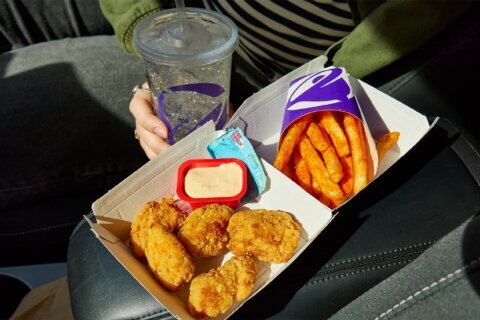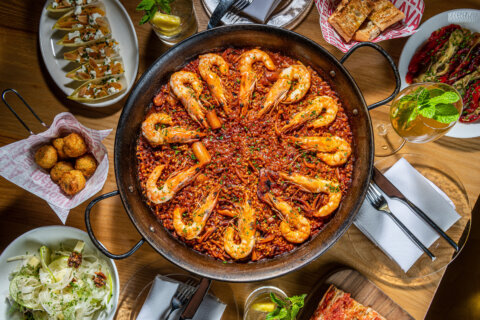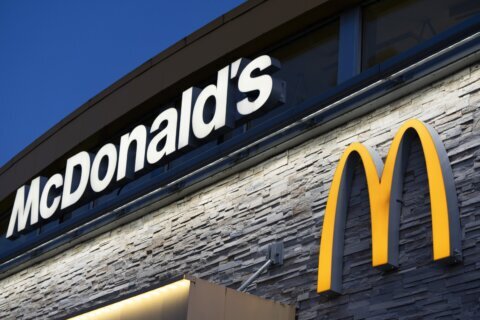New York (CNN) — The Pumpkin Spice Latte is coming back, again.
Starbucks said Wednesday that the signature drink would return to the fall menu on Thursday, marking its 20th anniversary.
The perennial Starbucks favorite has become a reliable hit, making it an autumn(ish) mainstay that has given the coffee chain a seasonal sales boost during this time of year, over the past two decades.
In 2020, Starbucks said the pumpkin drinks were the “catalyst” for a record-breaking quarterly performance in the three months ending September 27, 2020. In fall 2022, it reported that the platform had grown 17% year-over-year.
In addition to the latte, known fondly as PSL, customers will be able to buy other seasonal beverages, including the Pumpkin Cream Cold Brew and Apple Crisp Oat Milk Macchiato. New on the menu this year are the Iced Apple Crisp Oat Milk Shaken Espresso and Iced Pumpkin Cream Chai Tea Latte.
On the food menu, the Owl Cake Pop and Pumpkin Cream Cheese Muffin are coming back. Customers can also try a new Baked Apple Croissant.
And Starbucks’ Reserve stores, more upscale locations, will also sell pumpkin spice beverages for the first time this year. On their menu, among other items, is a pumpkin spice espresso martini.
Over the years, the Pumpkin Spice Latte has taken on a life of its own, becoming a signal for fall both beloved and mocked, and ushering in an era of pumpkin spice products, from cat litter to yogurt to beer.
And yet, “it’s still one of our top beverages,” said Thomas Prather, VP of marketing at Starbucks. “It kind of amazes me as a marketer, year over year.”
When it was first developed, the PSL tapped into a nostalgic taste with a distinct aroma: pumpkin pie. By now, the seasonal drink has become a nostalgic event on its own — one that can bring customers into stores when it returns for a limited time.
“It’s something you can depend on,” Prather said. “When PSL comes back — it’s something that you’ve remembered over the years and it’s like, okay, something in my life is normal and predictable and comforting.”
For marketers, seasonal products are an important way to create buzz. Often, they pick items that make people feel a certain way — nostalgic, or excited for a new season — but that are too indulgent to buy more than once or twice a year.
Pumpkin spice is everywhere now, to the point where people roll their eyes when they see yet another pumpkin spice product, or mourn the arrival of pumpkin spice anything as marking the end of summer.
But when the beverage was first debuted in 2003, it was a novelty.
A star is born
In 2002, Starbucks launched a peppermint mocha during the holidays. “That really seemed to resonate with our customers,” said Peter Dukes, then the leader of the Starbucks Espresso product team that brought the PSL to life. “We saw an opportunity to do something for fall.”
Dukes, now a director on the market strategy team within store development at Starbucks, put together a list of possible fall beverages along with his team. They asked customers how likely they would be to purchase the beverage — and how unique they thought it was. Drinks that featured caramel or chocolate scored high when it came to likeliness to buy, but customers didn’t find them unique. The proposed pumpkin latte had the opposite result.
At the time, Dukes noted, pumpkin spice wasn’t really a thing. You could find pumpkin puree and a spice topping for pumpkin pie, but not much else, he said.
So there was “a lot of debate” about whether to put a pumpkin latte on the menu. But ultimately, Starbucks decided to go for it.
The PSL first launched as a test in 100 locations in Washington, DC, and Vancouver. The following year, it rolled out across North America.
Tapping into our love of pie
When Starbucks seized on pumpkin as a flavor, it tapped into a well of good feeling.
“What probably works the best for the trend is just how much it is that symbol of fall,” said Paige Leyden, an associate director of food service at Mintel. “A lot of brands take advantage of that love for fall.”
Pumpkin pie is associated with Thanksgiving and crisp air — even in the summer, when the weather is still hot and humid. The flavor itself is such a powerful seasonal trigger that it doesn’t matter whether it comes in hot or cold, noted Kelly Haws, professor of marketing at the Owen Graduate School of Management at Vanderbilt University.
Pumpkin is especially powerful as a seasonal marker because it’s associated with a few fall holidays: Halloween, Thanksgiving and even Christmas.
“All of those nostalgic aspects that remind us of the fall,” are effective, even in summer, and even in a cold beverage.
At Starbucks, where customers increasingly prefer iced beverages, there are plenty of cold pumpkin spice options.
Seasonal items like the Pumpkin Spice Latte are also an important marketing tool because they only come around once a year.
“Taking it away, giving people something to look forward to … makes it all the more appealing to consumers,” said Haws.
The-CNN-Wire
™ & © 2023 Cable News Network, Inc., a Warner Bros. Discovery Company. All rights reserved.







